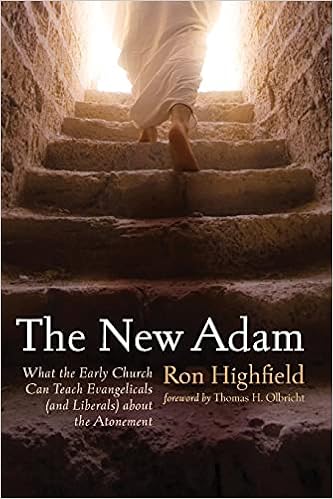Explaining Our Faith or Repeating Words?
In my experience most church members have never heard a serious discussion of the atonement. In a recent Sunday class I reviewed seven of the most prominent theories of how Jesus’s suffering and death save us from sin, death, and the devil. Hardly anyone had heard of even one of them. Indeed, the very idea that the historic church had held different theories of the atonement was surprising to most. Of course every Christian is familiar with liturgical phrases that assert in some way that “Jesus died for our sins.” However if you ask them how this works they have no answer.
The closest thing to an atonement theory that appears in evangelical churches can be heard in songs, sermons, prayers, and Eucharistic liturgies. Jesus “took our place,” in him “the wrath of God was satisfied,” “he bore it all,” and many more. All of these assertions derive in some way from the Bible as filtered through traditional Protestant theology. All of them contain an element of truth, but also, as I argue in The New Adam, place greatly distorted images in our minds. And what is just as problematic, hardly anyone who sings and prays them understands them or could explain them in a way that makes sense to an outsider. How can Christians explain to the world why the gospel of Jesus Christ is good news when they do not understand it themselves? I wrote The New Adam to address this problem.
From the Introduction to The New Adam:
Soteriological Dead Ends
Two options dominate the field for making sense of sin and salvation in contemporary Protestant Christianity, the evangelical penal substitution (PSA) and the liberal moral influence theories of atonement. Each theory proposes its own analysis of the problem to which Jesus Christ is the answer. Evangelical soteriology argues that sin offends God deeply and that to be true to his perfect justice God cannot merely forgive but must punish sin as it deserves. However in his great mercy, God sent Jesus into the world to endure in our place the punishment sin deserves and earn our forgiveness. In this way, Jesus Christ embodies God’s love and satisfies his justice in his one act of dying on the cross.
In contrast to this evangelical perspective, liberal atonement theory views sin as individual imperfection, ignorance, and sensuality or as unjust social structures that foster racism, sexism, economic disparities, and other evils. God is not an angry judge but a loving Father. Jesus helps us overcome sin by teaching about the love of God and living in a way that inspires us to live the way he lived. Jesus died on a Roman cross not to divert God’s wrath away from us and onto himself but to witness to God’s justice and love. God did not kill Jesus. The Romans killed him because he would not compromise his message. The way he died demonstrates his unwavering faith in the love of God and inspires the same confidence in us.
In my view, neither evangelical PSA nor liberal moral influence theory can meet the challenge we face today, that is, how may contemporary theology help the church to restate its soteriology in a way true to the apostolic faith and comprehensible to people living now? Since the evangelical theory pervades not only evangelical theology but also evangelical sermons, song lyrics, and personal piety, I devote two full chapters to documenting, analyzing, and criticizing this viewpoint. Despite its claims of biblical faithfulness, traditional rootedness, and theological soundness, I argue that evangelical PSA falls short in all three areas.
Nor can it be made understandable to people inside or outside the contemporary church. Since liberal theology and mainline churches are the default religious options for those looking for alternatives to evangelicalism, I devote a chapter to liberal soteriology. Liberalism rightly senses that traditional soteriology makes no sense to modern people, so it attempts to translate Christianity into present-day terms. However in my view, it evacuates the substance of the apostolic faith in the process. Nor does its simplistic diagnosis of the human condition take seriously the human capacity for evil. Consequently, its solutions strike me as superficial.
